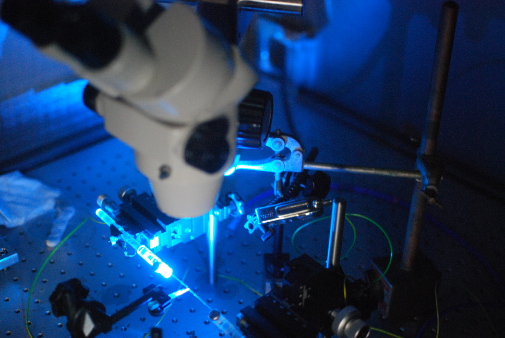From bench to bedside: the role of LRRK2

Overview
In addition to movement difficulties, Parkinson’s disease patients report visual problems caused by changes in neural sensitivity. Most of these neurological symptoms were studied before inherited forms of Parkinson's disease were discovered and so their precise connections to genetic causes are unclear. The goal of this project is to better understand these connections.
When the most common mutation associated with Parkinson's disease, LRRK2-G2019S, is expressed in flies, it causes both motor and visual defects. It is a credible hypothesis that these defects are related to similar problems in human Parkinson's Disease patients, but to date there has been no way to make these measurements in human populations.
The project's first goal is to test this hypothesis by recording vision and motion responses in a unique, genotyped Tunisian population where LRRK2-G2019S mutations cause c. 40% of Parkinson's disease cases. It is hoped to establish a link between LRRK2-G2019S symptoms in humans and flies using sensitive tests for vision and motion deficits developed through previous C2D2 funding at York.
The second objective of the project is to use invertebrate and vertebrate models to clarify in detail the visual and motor biomarkers associated with the LRRK2 associated forms of Parkinson's disease. It is intended to quantify changes in vision and locomotion occurring throughout the life of zebrafish and flies expressing the LRRK2 mutations as well as start to examine the impact on these changes of introducing candidate therapeutic compounds.
The ultimate goals of the research are to enable better prognoses for Parkinson's diseases patients with LRRK2 mutations, especially with regard to visual deterioriation, and to provide new high-through-put ways of screening and assessing potential drug candidates.
The project builds on the work of the following previously C2D2-funded projects:
- Dynamic measurements of neural gain control and visual processing in drosophila models leading to new possibilities for the early-stage diagnosis and treatment of Parkinsons's Disease and other neurodegenerative disorders
- Zebrafish: a new vertebrate model for Parkinson’s disease
- Technology for the diagnosis and monitoring of neurodegenerative diseases in routine clinical practice
The project also connects to the White Rose project: A Multi-disciplinary Approach to Understanding the Causes of Parkinson’s Disease and Identifying Therapeutic Targets
Outputs
Grants
- Chris Elliott & Alex Wade, University of York, Early Stage Commercialisation award: 'Fly models of Parkinson’s disease', £19,942.
Publications
- Afsari, F., Christensen, K.V., Smith, G.P., Hentzer, M., Nippe, O.M., Elliott, C.J.H. and Wade, A.R. (2014) Abnormal visual gain control in a Parkinson's Disease model. Human Molecular Genetics, doi: 10.1093/hmg/ddu159
- West, R. J.H., Furmston, R., Williams, C. A. C., and Elliott, C. J. H. (2015). Neurophysiology of Drosophila Models of Parkinson's Disease. Parkinsons' Disease, DOI: 10.1155/2015/381281
Principal Investigator
Professor Alex Wade
Department of Psychology
alex.wade@york.ac.ukCo-Investigators
Dr Chris Elliott
Department of Biology
chris.elliott@york.ac.ukDr Betsy Pownall
Department of Biology
betsy.pownall@york.ac.ukDr Stephen Smith
Department of Electronics
stephen.smith@york.ac.uk
